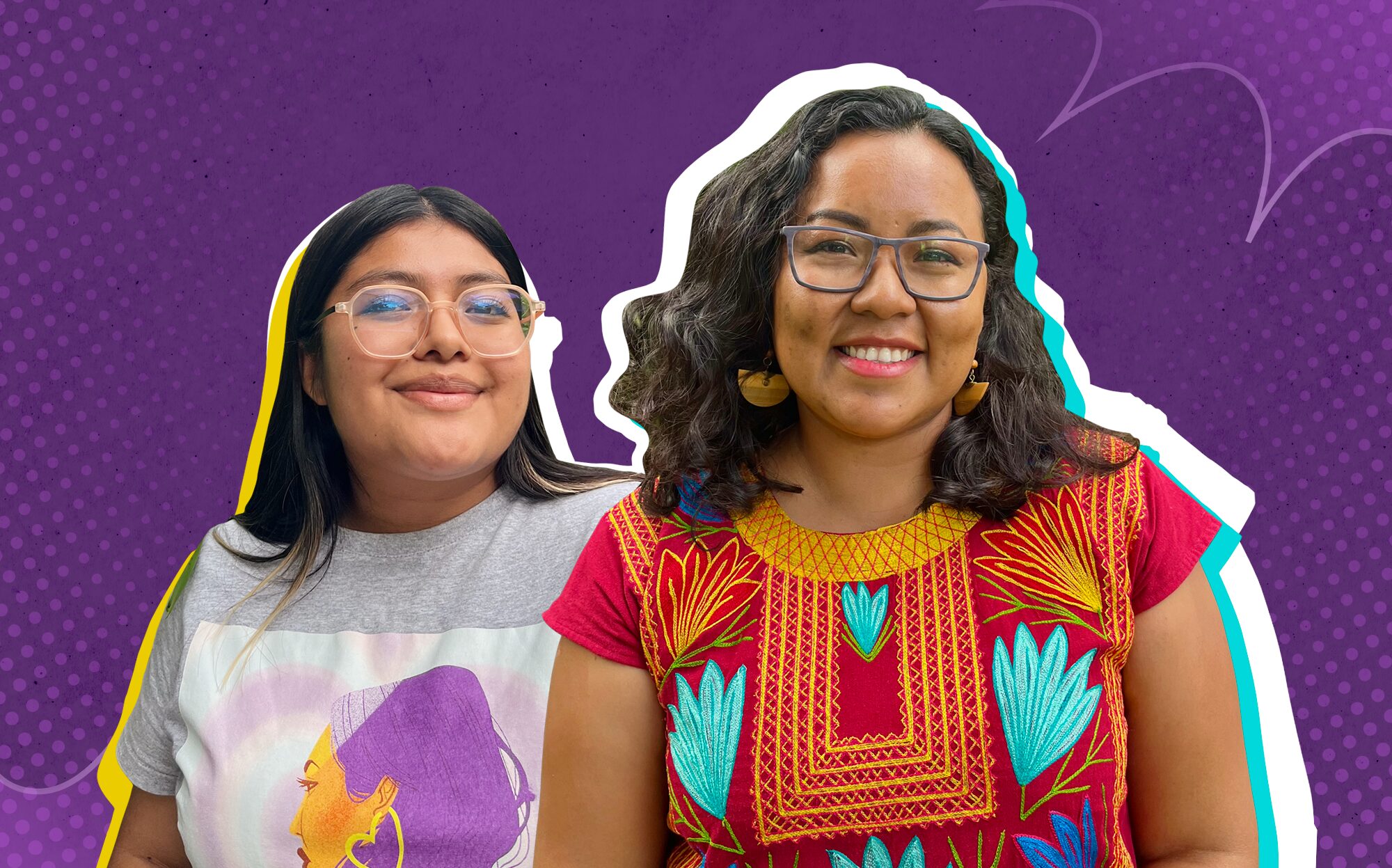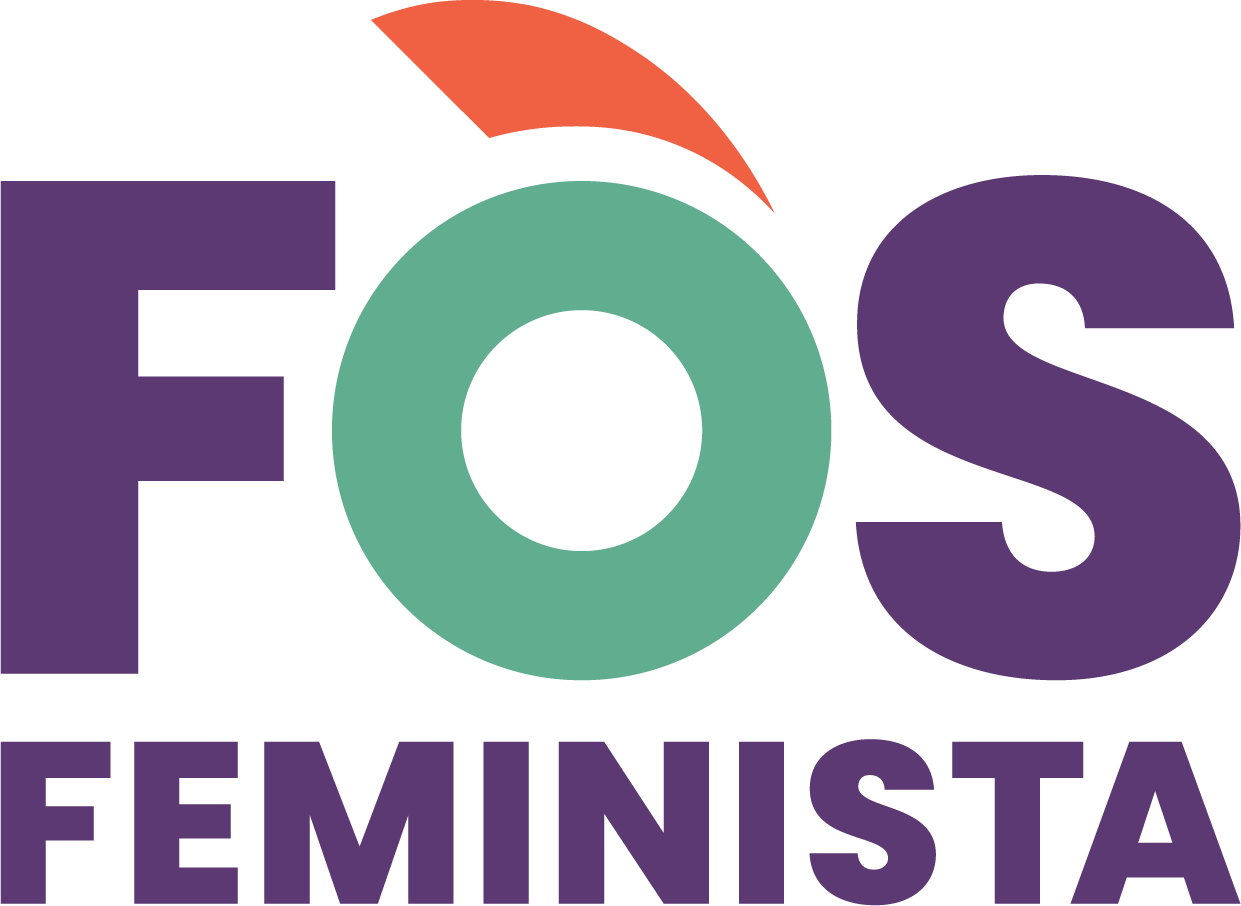
Meet Xally Martínez and Zuly Herrera Morga, activists from Mano Vuelta, working to promote intercultural, anti-racist abortion care in Oaxaca.
Read the Spanish version here.
Xally Martínez’s commitment to community activism is rooted in generations of strength and unshakeable perseverance. Growing up in a rural region of Oaxaca, Mexico, Xally witnessed the ripple effects of gender-based violence from an early age, of which both her mother and grandmother are survivors. Through the support of local women’s collectives and the solidarity found in their surrounding community, both women rebuilt their lives, leaving a lasting impression on Xally in their wake.
Similarly, Dyadha Zuleima Herrera Morga – who goes by Zuly – grew up in an Afro-Indigenous family and developed a strong sense of the need for culturally responsive resources for women in Mexico’s rural regions. After moving to Oaxaca to study psychology, Zuly reconnected with her family’s cultural background and began recognizing her identity as the foundation in which to ground her work.
Experiences like Zuly’s have become more common in recent decades, thanks to the struggles for the rights of descendants of native peoples who faced colonization and of African people brought to Mexico by colonial slavery. In 2001 Mexico’s Federal Constitution established the rights of Indigenous peoples, who make up 20% of the country’s population, and only in 2019 did it recognize Afro-Mexican people. In 2020, for the first time in a population census in Mexico, a question was included to identify the Afro-Mexican population, which accounts for 2% of the country’s population.
“There is a lot of discrimination in Mexico, a lot of stigma and racist violence,” Zuly said. “They don’t value our culture, and they don’t receive our roots well.”
Oaxaca is the Mexican state with the highest percentage of Indigenous people and the second-highest percentage of Afro-Mexican people in the country. Given the variety of cultures and languages present in the region, essential information and resources can often be inaccessible for people who speak different languages, and the need for translation services is acutely exhibited in matters of sexual and reproductive health and justice.
Motivated by the experiences of her family members and a recognition of the limited resources in her community, Xally sought out local advocacy trainings, which led her to Fòs Feminista’s partner Mano Vuelta, an Indigenous and Afro-Mexican-led organization focused on equity and rights for women and girls in Oaxaca’s rural areas. Engaging with Mano Vuelta’s workshops allowed Xally to deepen and expand the scope of her activism while also discovering new strategies to engage her peers in the cause.
“It was essential to find those spaces,” said Xally, now 17 years old. “It is very powerful to be in networks, and through networking, I’ve become a trusted reference in my community.”
Taking the knowledge and strategies gained through her training with Mano Vuelta, Xally has now built a peer-to-peer collective that provides accessible information about contraception and abortion access to other young women in her community. Members of Xally’s collective also serve as abortion companions, providing support and assistance to help women in their communities who often don’t know they have the right to end a pregnancy access a safe and legal abortion.
“Accompanying and deciding on our own lives is an act of love for ourselves,” Xally said of the abortion accompaniment initiative.
Mano Vuelta’s evidence-based advocacy strategy to promote intercultural and anti-racist abortion care in Oaxaca draws on the mobilizing power and leadership of young Indigenous and Afro-Mexican women like Xally and Zuly, who has been a member of Mano Vuelta’s team since 2018. Their community-based capacity-sharing programs fuel social decriminalization initiatives, including a recent multimedia campaign titled “In my body and mind, the decision is mine,” which shares legal abortion information in four of Oaxaca’s Indigenous languages: Mixtec, Zapotec, Ayuuk, and Cuicatec.
Mano Vuelta’s work is based in recognition of each community’s customs and respect for their cultural practices. Translation is a key component of reaching women in rural communities who may speak an Indigenous language, and being able to engage them in their native language can establish a sense of belonging when delivering resources and support services to women in the region.
“Today, I recognize myself collectively, which gives me meaning and is what allows us [at Mano Vuelta] to sustain ourselves,” Zuly said, acknowledging the importance of her cultural identity.
With Mano Vuelta’s support, Xally’s youth collective monitors a variety of issues in their community, including early and forced marriages, gender-based violence that may occur in their schools, and barriers to reproductive care in local health facilities. Xally conducts direct outreach to challenge any harmful developments or narratives on these topics, including at her city’s primary hospital, where she has pressed the hospital director to adapt an intercultural perspective to care, a core pillar of Mano Vuelta’s mission.
Through the monitoring of social and health policies by local activists, Mano Vuelta has documented myriad barriers to abortion access: Most glaringly, there are only 11 abortion care providers available in the 570 municipalities in the state of Oaxaca, many of which struggle with lack of trained professionals, medications, supplies, and other resources.
After years of effort, Mano Vuelta’s advocacy successfully informed the development of Oaxaca’s new state abortion guidelines, which were officially instituted in November 2023. The guidelines include several key provisions that Mano Vuelta has long advocated for: decentralization of health services, abortion access information in native languages, and translation support.
As an organization that supports and nurtures grassroots efforts, Mano Vuelta celebrates the revised state abortion guidelines. However, knowing that progressive laws and policies are only one step in protecting rights, they continue to lead social and budget monitoring by Oaxacan activists in order to hold their local government accountable.
“I truly feel that this support [from Mano Vuelta] is necessary – we work as allies,” Xally said. “And today, I work so that the things that have happened to my ancestors are not repeated.”






